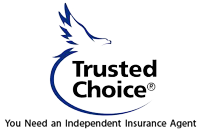 Did you know that U.S. adults carry an average of $5,540 in credit card debt? That’s a significant chunk of change.
Did you know that U.S. adults carry an average of $5,540 in credit card debt? That’s a significant chunk of change.
Credit cards tend to get a bad reputation and if not managed properly they can certainly cause a significant amount of stress. However, when used responsibly, they can also enhance your financial life. Here are six items you must know about your credit card, according to our partners at Progressive Insurance:
1. Annual Percentage Rate
The Annual Percentage Rate, or APR, indicates the amount of interest you will pay on any credit card balance you carry over to the next month, any cash withdrawals you take against your card or any balance transfers you make from another card. How does this translate?
If you have a card with a 22% APR, you’ll pay $22 for every $100 that you charge and don’t pay off. Keep in mind it’s likely that your credit card has multiple APRs in place for your one card. For example, your credit card can have a 15% APR for purchases and 20% APR for cash back.
Your goal: To have the lowest APR possible for the longest period of time. Be on the lookout for promotional offers that bump up your APR after an introductory period.
2. Fees
A steadily growing numbers of cards that offer rewards also come with annual fees attached. Although it may be waived for the first year, these fees are typically charged in the first billing cycle so you already have debt when the card comes to you! Be aware of the cost to own your card and any fees involved with late payments, balance transfers and more.
Dig into the fine print before signing up to ensure you’re aware of what costs you’re agreeing to. As an example, late fees can run at $25 for first-time offenders and $35 for frequent offenders.
3. Rewards Programs
Are you a frequent traveler? Do you like to dine out? Many credit cards come with rewards programs that make our eyes light up when we think about the plethora of “free†items we could be earning.Remember that these things aren’t necessarily free.
Only charge items to your cards that you have the funds on hand to pay for. Otherwise, credit card companies are betting on you putting too much on your card each month and their being able to charge you interest and make a profit on the balance you can’t pay off. (They don’t offer these rewards programs out of the kindness of their hearts, after all.) Maximize rewards by only charging expenses that are already factored in to your budget.
4. Minimum payments due and timeline to tackle a balance in full
When you receive your credit card statement, you’ll notice the minimum payment due. If you choose to pay this amount, you’re opting for the most costly way of knocking out your debt. In reviewing your statement, be sure to also note the amount of interest you’ll be paying and how long it will take you to tackle your balance with the minimum due. Your statement should also display a suggested payment amount for paying off the balance sooner as well, such as 36 months.
5. How your credit score is impacting your APR and credit limits
Your credit card is your financial report card, except there’s no getting rid of it after college. The better your credit score, the less risky you are to lenders and the more they’ll lend to you (at lower interest rates). Have a low credit score and you’ll earn yourself reduced credit card limits with higher APRs attached. Managing your credit cards and finances responsibly can translate into money saved and higher lending limits.
6. Whether or not you’re comfortable using them responsibly day to day
Credit cards aren’t for everyone. If you’re not certain that you have the ability or self-control to resist impulse spending, you may want to automate fixed expenses to go to your credit cards on a monthly basis (such as your cell phone or insurance) and then simply pay off those balances while using your debit card for other expenses. Or simply opt to use cash and debit cards until you feel more educated and in control.
Responsible credit card use can translate into higher credit scores, which are helpful when applying for car loans or mortgages. But don’t sacrifice your score if you’re not comfortable having access to an open line of credit.




Leave a Comment